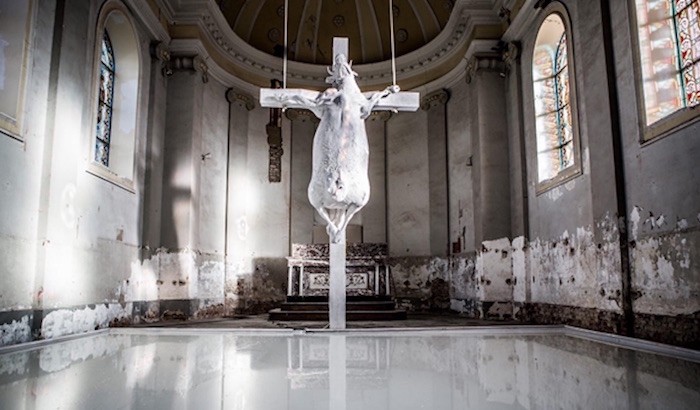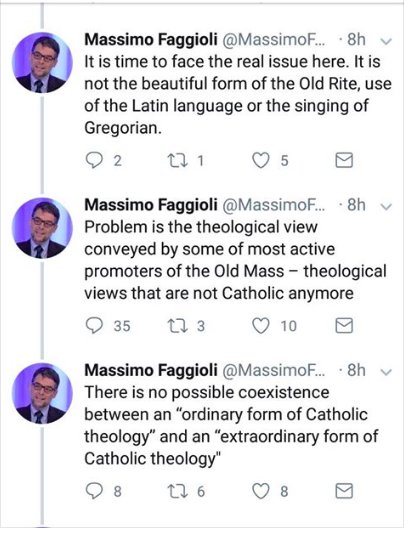 Having celebrated the Octave of Christmas, now we come to the season of the Pastoral Letters from bishops. It is a venerable tradition, that demands a high standard, the Pastoral Letters of Apostles form part of scripture, the letters of early bishops form an important part of the Tradition. Bishop's letters are meant, as much as sermons, to change lives, probably more so because they come from a successor of the Apostles.
Having celebrated the Octave of Christmas, now we come to the season of the Pastoral Letters from bishops. It is a venerable tradition, that demands a high standard, the Pastoral Letters of Apostles form part of scripture, the letters of early bishops form an important part of the Tradition. Bishop's letters are meant, as much as sermons, to change lives, probably more so because they come from a successor of the Apostles.A correct Catholic understanding of the Liturgy of the Word sees the readings and most especially the Proclamation of the Gospel, not as a teaching moment but as theophany, a revelation of God himself. What follows the Gospel is analogous to what follows the offering of the Eucharistic Sacrifice; the distribution of Holy Communion. The Sermon or Pastoral Letter is an action, like Communion, which makes the Lord available to God's people, in a sense 'distributing' him or inserting him into the lives of his people. Sermons and Pastoral Letters are not about information but about Salvation, about feeding with God himself.
I heard of one US diocese where it is customary for a television to be placed on the Altar, sometimes in front of Tabernacle and for bishop to speak directly - well through the electrical machinery - to the people. There seems to be a lot of theological muddle here, not least that the whole point of having priests is that they are ordained to stand in the place of the bishop, celebrating the sacraments in communion with him and speaking in his name, and on the joyous occasion that the bishop should consider is important enough to write to his clergy and people they actually speak his words because the priest (or deacon) on these occasions is the bishop's logothete. He is the sign, not only of Christ but of the Bishop.
It is 'reprobate' to use recorded music in the Sacred Liturgy, even more so is it reprobate to use recorded speech or film, even a bishop's speech. Few would ever dream of playing a recording of even the Pope's or someone else's most brilliant words in the Liturgy. Though I did hear of an Italian priest who at his daily Mass used a video of the Pope's Casa S Marta sermons until his bishop stopped him. In Argentina, apparently, a priest had Communion Services in which he recorded himself preaching and saying the prayers until the moment of Communion when a lay person went to the tabernacle, having been put on pause he was switched on to conclude with the post Communion and blessing, all on the TV.
One bishop who eventually resigned in disgrace issued an outrageously heretical Pastoral Letter on the Sacrament of Penance, following complaints from a few clergy and a greater number of laity the Nuncio, Abp Mennini, made him write again and because this was not much better, he was made to do it, a third letter, this time with a bit of help, the Archbishop gave after that.
Pastoral Letters, like sermons can do a great deal of good, although many people tend to suffer from fatigue listening to Father week by week Pastoral Letter are supposed to be heard. An elderly priest said it was a Pastoral Letter from his Archbishop, '... on those young men who stop their ears to a call from God' it made him listen to God, and eventually offer his life to work on the Missions. He said, 'when I eventually told Archbishop Amigo, he called me a 'traitor' as he had written the letter to promote vocations for his diocese, not for the missionaries'.
 One of my parishioners is a student from Portsmouth, whenever bishop Egan writes, he is delighted and presents me with a copy. He writes powerfully, not just to inform but to change minds and soften hearts, to increase the faith of his people, to share is own faith and ultimately to save. It is very sad when the faithful find their own bishops' Letters so faithless and shallow, so lacking in learning and so uninspiring that there is a groan when it is announced.
One of my parishioners is a student from Portsmouth, whenever bishop Egan writes, he is delighted and presents me with a copy. He writes powerfully, not just to inform but to change minds and soften hearts, to increase the faith of his people, to share is own faith and ultimately to save. It is very sad when the faithful find their own bishops' Letters so faithless and shallow, so lacking in learning and so uninspiring that there is a groan when it is announced.Unfortunately we clergy, bishops and priests, are often boring people out of the Church or undermining faith through sheer tediousness! We can easily demonstrate how sterile our own faith is.

















